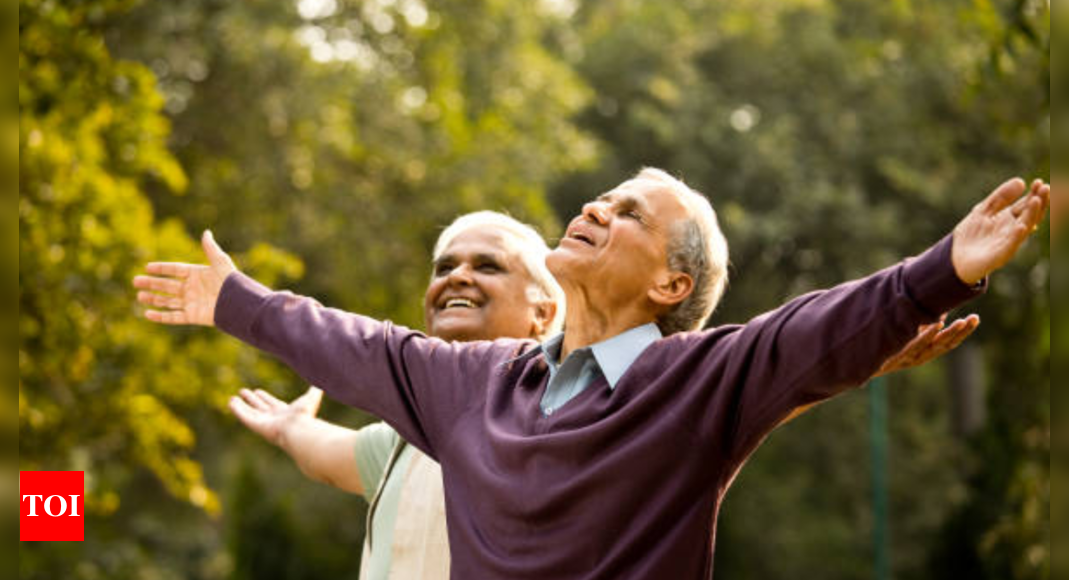It is not uncommon for people to witness a decline in health as they age. While physical health has become a major topic of discussion in aging, mental health, which has a significant impact on overall health, cannot be ignored. As older adults face many life changes, including retirement, bereavement and physical health challenges, their mental health can be significantly affected and we need prepare for that. Some of the main mental health challenges they may experience include depression, anxiety, loneliness, feelings of isolation, memory problems and overall cognitive decline. We must remember that addressing persistent mental health concerns requires the expertise of specialists. Seeking professional help can provide valuable guidance and support for your aging loved ones. These professionals are trained to assess, diagnose, and provide appropriate treatments for mental health conditions in the elderly. It is important to note here that just as certain lifestyle choices benefit our physical health, a life of healthy habits can have a positive impact on our mental health. as well as a healthy mind. Below are four important strategies for senior mental health that, if ingrained into life, can foster a healthy mind in addition to a healthy body. they are always active and involved in daily tasks. Establishing a daily schedule with consistent activities can help maintain physical and mental health, providing a sense of accomplishment and stability. Connecting with nature through outdoor activities like gardening or leisurely walks can enhance health, reduce stress and improve mood. Healthy eating habits, including a balanced diet rich in nutrients, support overall health and energy levels. Additionally, engaging in hobbies and reconnecting with friends/relatives, whether through community groups or family activities, can promote a sense of belonging and fulfillment, contributing to a more fulfilling lifestyle. Active and meaningful living for older people.
Taking care of your physical health Studies show that regular exercise reduces days of poor mental health and can be as effective as medication for treating depression. Exercise releases endorphins, which help elevate mood, reduce stress and anxiety and improve sleep quality, which is important for mental health. Light, gentle activities like brisk walking, moving around the house, or activities like swimming and dancing can lift mood and improve cognitive function in older adults. As an additional step, participating in group exercise classes adds a social element to physical activity, which may encourage older adults to be more active and may further enhance the improvement effects. its mood. Furthermore, incorporating relaxation techniques such as deep breathing, meditation and mindfulness into daily routines can help older adults manage stress and improve mental health. Additionally, as a preventative measure, regular screening for eye, hearing, and mobility problems is important as these can lead to dependence and negatively impact health. mental health. Strong Social Networks Not just for older adults, social connection is a pillar of mental and emotional wellbeing for people of all ages. However, for older adults, a strong social network provides a sense of belonging, purpose and support, which can greatly reduce feelings of isolation and loneliness, the latter of which is main risk factor for cognitive decline in the elderly. Since loneliness can lead to disorders such as depression and sleep disorders, it can negatively impact mental health. According to one study, older adults who experienced social isolation had an approximately 50% increased risk of dementia, a 32% increased risk of stroke, and a 29% increased risk of heart disease.
The good thing here is that fighting loneliness and isolation is not as difficult as it seems. Reconnecting with loved ones, joining a club or social group that one finds interesting, or volunteering can help combat it. In particular, volunteering not only fosters social connection but also provides a sense of purpose and accomplishment. Keep your mind sharp: Brain training activities Brain training activities are just as important as physical activity and a balanced diet. Activities such as reading, solving puzzles, crosswords or playing chess are not only entertaining but can also have broad and lasting benefits. These activities also help older adults improve their memory, concentration, and problem-solving skills. During this period of life, when a person may feel lonely and lacking attachment, social interaction also helps and makes them feel connected, playing an important role in keeping their mind sharp. . Conversations with loved ones or people of the same age stimulate cognitive function and provide new opportunities to learn new things and exercise the brain. In addition to these activities, learning a new skill such as a new language or musical instrument can also help exercise the mind. Because the learning process requires the brain to form new neural connections, it improves cognitive flexibility, enhancing mental health. Mental health is a key factor that contributes to quality of life, helping individuals stay motivated and positive despite the challenges of aging. To support older people in their mental health journey, a specialized and comprehensive approach is needed. This approach must acknowledge the unique challenges of each older person, thereby providing appropriate solutions. One needs to remember that family and caregiver support remains the most important aspect of this. It’s important to remember that maintaining healthy aging is not a destination but a process—a journey. With small but important steps, the mental health of the elderly can be significantly improved, ensuring them a fulfilling life. (Author: Neha Sinha, CEO and Co-Founder of Epoch Elder Care)










